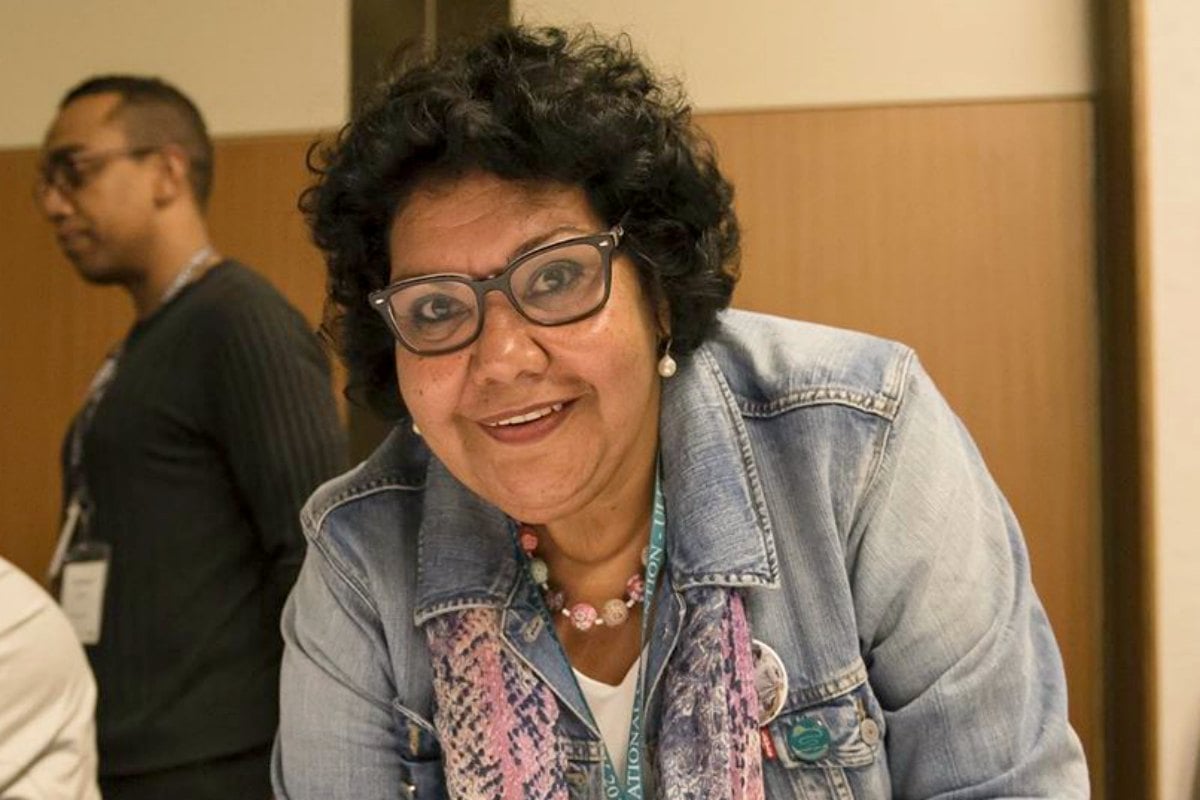
It took Australia 23 years to ensure that the Aboriginal and Torres Strait Islander Social Justice Commissioner was Indigenous themselves. That position currently belongs to Dr June Oscar AO, a Bunuba woman who grew up in Western Australia’s Fitzroy Crossing, in the Kimberley region.
Currently in her second year of a five-year term, Dr June is in charge of elevating the voices and issues of Indigenous peoples, and it’s a role that’s brought her to Sydney, 4,700 kilometres away from Kimberley, Western Australia.
Born in 1962, the 57-year-old describes her childhood as a time when the “ravages of alcohol hadn’t hit,” and the majority of men in her community lived and worked on cattle farms, alongside their families.
“It was very solid in terms of security for family,” she said, speaking to Marlee Silva on Mamamia’s Tiddas 4 Tiddas podcast.
“It was a wonderful childhood.”
Everything came “crashing down” in 1968 when the Conciliation and Arbitration Commission ruled on equal wages in the cattle industry. The policy was a hollow victory which didn’t deliver higher wages as intended, but saw hundreds of Indigenous families forced off the farms and properties they had lived on for generations, as their positions were given to white workers.
“Many families were told to move off the cattle properties as workers, and ended up in fringe camps and missions,” she said.
Describing the conditions as “almost-refugee like”, multiple tribes were forced to live in confined areas.
